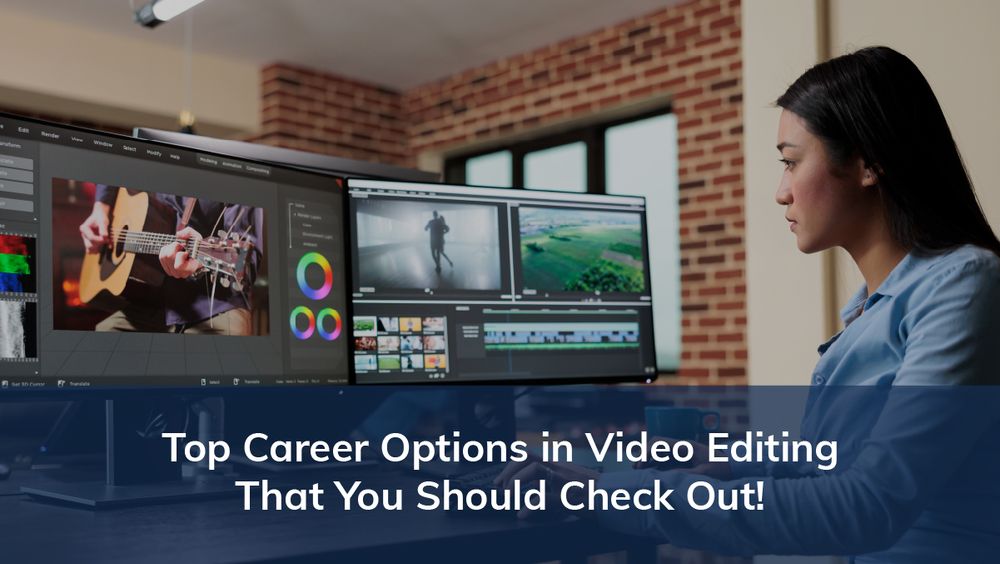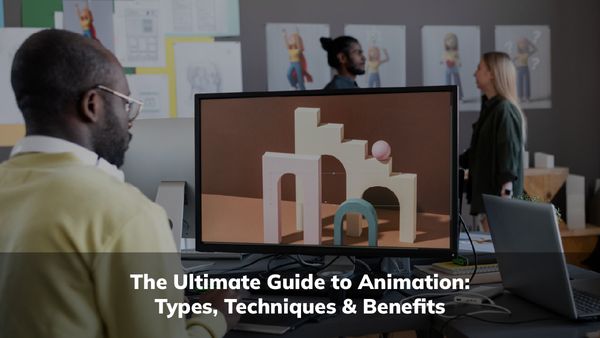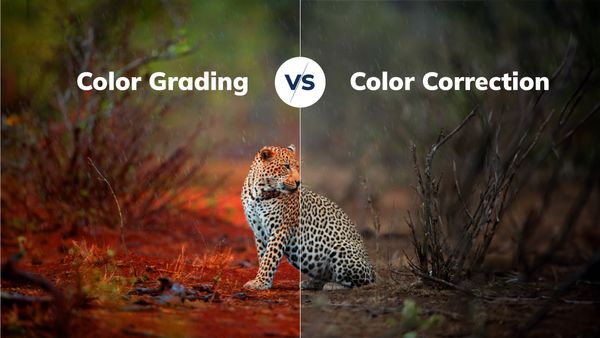Top Career Options in Video Editing That You Should Check Out!
Do you like movies or TV shows or spend much time on YouTube videos? Are you interested to be a part of the video editing team? Do you find video editing an interesting career option for you? If your answer to these questions is yes, then you can think of a video editing course to become a professional Video Editor.
Video editing as a career is booming in the market. Especially in the industries like media & entertainment, corporates, IT sectors, Advertisement agencies, and more. All need a video editor for creating extraordinary videos. The growth of digital social media is one of the reasons for the high demand for video editors. Corporate trainers are using videos for training purposes.
So, if you are excited about videos, and wish to take them as a career option, then start with the premiere pro video editing course by the leading brand ProAlley, where you can learn much more than just basic video editing. You can explore color grading course and Adobe after effects course for a complete learning experience.
The use of video editing software premiere pro lessons is the best for video editing. It is a practice of manipulating and arranging video clips to create unique work. As a professional, there is an integration of technology and artistic sense which needs to be applied to maximise the impact of the moving images.
If you are pursuing a video editing career, you need to be technologically upgraded, skilled in using tools & techniques, and keep them in practice. Here are some of the top job profiles you can work on to ease your job search if you take a professional video editing online course.
Which are the top 10 video editing jobs in India?
Here’s the list of the top 10 video editing jobs in India that you can explore as a video editor.
1: Videographer
National Salary: Ranges between ₹ 0.2 Lakhs to ₹ 7.1 Lakhs with an average annual salary of ₹ 3.6 Lakhs.
As a professional videographer the main work is using the footage captured with the camera. Compared to feature film editors and camera operators, videographers work on smaller-scale projects like documentaries, commercials, short films, training materials, and live events like weddings or parties. You can start your own business by setting up your own equipment to get started as a professional videographer.
2: Video Content Creator
National Salary: Ranges between ₹ 1.7 Lakhs to ₹ 10.0 Lakhs with an average annual salary of ₹ 3.7 Lakhs.
A video content creator is a type of online personality, responsible for creating video content for entertainment purposes. The primary duty includes:
- Developing the content.
- Evaluating the metrics to guide the content.
- Setting up equipment and shots.
- Even uploading videos to various platforms.
You can work independently in small teams or as a part of the rosters of creators. You can even choose to work as a fully independent creator who can handle video responsibilities well.
3: Film Editor
National Salary: Ranges between ₹ 4.50 Lakhs to ₹ 18.31 Lakhs with an average annual salary of ₹ 8.7 Lakhs.
Choosing an exciting career option like a film editor is a dream for many passionate video editors. The visuals, sound effects, and aftereffects need a long form of production. As a film editor, you play a crucial role in setting the pace of visual narratives. The job involves reviewing the film footage to determine the shots that are included in the final film. Cutting the film shots, editing, manipulation of film, arrangement of elements, music, colour effects, and finalising all depend on the film editor.
4: Multimedia Designer
National Salary: Ranges between ₹ 2.0 Lakhs to ₹ 11.5 Lakhs with an average annual salary of ₹ 4.8 Lakhs.
A multimedia designer is a professional graphic designer integrated with various types of visual media that communicates the correct set of messages for television, social media, film, website, and advertisements. Your work is typically to make the videos using the right graphics and animations. The main job is to meet the stakeholders and determine the brainstorming sessions to create interesting designs using original art and editing features.
5: Broadcast Engineer
National Salary: Ranges between ₹ 1.9 Lakhs to ₹ 9.0 Lakhs with an average annual salary of ₹ 3.7 Lakhs.
In India, the broadcast engineer is known as a broadcast technician; choosing this role, you need to handle the equipment responsible for controlling broadcast signals. You can work as a radio or television engineer setting up and operating the transmitters to emit signals and maintaining the strength so that the broadcast air is clear and consistent. It is a great role where you will be well-equipped to capture the audio elements, convert audio clips into digital formats, and edit those clips with the computer software.
6: Animator
National Salary: Ranges between ₹ 2.9 Lakhs to ₹ 11.0 Lakhs with an average annual salary of ₹ 4.7 Lakhs.
Working as an animator is a creative profession where you can make the object move and appear attractive. You can work in the television, film, or even video gaming industry. You can draw by hand or use specialised computer software to develop characters using techniques and motion graphics to the objects. The main job role encircles the movement of real-life subjects and edits the created animated footage.
7: Content Developer
National Salary: Ranges between ₹ 1.5 Lakhs to ₹ 9.0 Lakhs with an average annual salary of ₹ 3.8 Lakhs.
Whenever we talk about the content developer, people think it is related to writing, like some web content specialists. The role of a content creator and content developer is closely associated with video editors. You can create your imagination into reality using techniques and tools you have learned in your pro course premiere pro editing course. It depends on the industry and what sort of content you will produce. Conducting research, articles, editing photographs, and planning for the entire range of content is the work of the content developer that you must operate efficiently.
8: Colorist
National Salary: Ranges between ₹ 0.4 Lakhs to ₹ 10.2 Lakhs with an average annual salary of ₹ 5.2 Lakhs.
A Colorist profile is in high demand in the film industry. You will have to create the visuals for colour story production. Your work is mostly post-production stage when the filmmaking process is done. The Colorist must use colour editing software and add diverse hues, tones, and shades to the edited films. The job demands collaboration with film directors and photographers to determine the colour production palette, which is crucial. The demand for such roles is very high.
10: Studio Manager
National Salary: Ranges between ₹ 2.9 Lakhs to ₹ 16.0 Lakhs with an average annual salary of ₹ 6.6 Lakhs.
A studio manager is a person who oversees the daily operations at a recording studio. You will solely help and coordinate the artists to ensure that the scheduled recording sessions' progress is planned. The role involves a lot of planning, tracking ongoing projects, and even meeting clients’ expectations. As a Studio Manager, you must edit videos created by artists in small-scale organisations.
FAQs
1: Where can the professionals in Video Editing work?
Professional video editing can work successfully in studios, advertising, animation offices, broadcasting, film production, and computer gaming companies. You can choose to work independently as a consultant or a freelancer.
2: What are the educational requirements to start a career in video editing?
There is no formal degree required for exploring your career in video editing. Anyone is a strong creative inclination can explore this career option. To learn the techniques, you can choose a bachelor’s degree in video editing. Some intensive premiere pro editing courses and VFX certificate courses will add value to your resume to work as a professional video editor.
3: What video editing skills do you need to succeed?
The in-demand skills can help to succeed in video editing. It includes:
- Computer proficiency: You need to have basic knowledge of software programs.
- Attention to detail: You must have the ability to complete the tasks accurately with precision and focus.
- Adaptable Nature: You must know how to adjust your approach & attitude to diverse video editing projects.
- Problem-solving Attitude: It refers to how much one can evaluate the video related challenges to change and develop suitable solutions.
- Communication Skill: Your ability to receive and offer information to teammates or clients about the entire video editing project.
4: Is it necessary for you to have a degree to become Video Editor?
There is no need to have a degree for you to become a video editor. But having one will help you to get the details of how video editors’ work. The techniques need to be learned from experts who have been in this business for years. By enrolling in the online premiere pro editing courses by ProAlley, you will get streamlined to perform accordingly.




